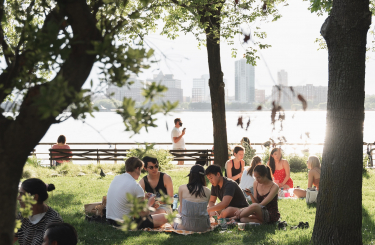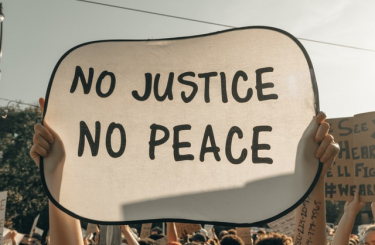We’ve been working across the funding sector to see how we can shift the dial permanently, and this was the main theme of the first day of our Camference. Joining us to contribute to that learning on the first day were:
- Yvonne Field (Founder/CEO, Ubele)
- Manny Hothi (Chief Executive, Trust for London)
- Okela Douglas (Founder/Director, Sister System)
- Natasha Friend (Director, Camden Giving)
What we heard
Sharing reflections on what the past year and a half has meant for power dynamics, Yvonne Field told attendees that Black and marginalised communities were pushing for reform for many years, and that it took a pandemic to create a ‘crack in the system’ where spaces opened for more honest conversations with funders - including those who had rejected them in the past.
Prior to the pandemic, funders didn’t see what we were seeing and didn’t trust us - which speaks to how embedded the inequity is.
Okela Douglas described the pandemic as “bittersweet”. As Okela explained: “Sister System were founded because we as a group of professional Black women acknowledged that there was a crisis way before covid. Prior to the pandemic, funders didn’t see what we were seeing and didn’t trust us - which speaks to how embedded the inequity is”. On the other hand, she commented that it has been positive to see funders becoming more open, and recognising that Sister System has the kind of passion and commitment to really affect social change.
It doesn’t wash away centuries of unequal power dynamics that sits between people.
In thinking about whether there has been a shift in some of the inequity inherent in the funding sector, Natasha Friend pointed out that although many funders have relaxed their reporting requirements and made processes more flexible during the pandemic, “it doesn’t wash away centuries of unequal power dynamics that sits between people”. Building on that, Yvonne stated that: "to shift power dynamics long-term, funders need to first acknowledge the work that has already taken place by Black and Brown activists in shifting some of those conversations around power and holding funders accountable."
No matter how good your relationships with your grantees are, it’ll always be hard for them to be 100% honest because there is that power imbalance.
What can funders do?
To ensure commitments to being more equitable and open are actually sustained long-term, the panellists shared lots of important points including the need to approach grant-making with humility and openness. As Manny Hothi said: “no matter how good your relationships with your grantees are, it’ll always be hard for them to be 100% honest because there is that power imbalance”. There is a tendency on funders part to ‘over- intellectualise’ the work we do. As a result, we make it a intimidating culture for people to come into. Being less formal and honest can help bridge that gap between funders and grantees. Manny suggested that rather than asking grantees why they deserve funding, ask instead ‘how can we support you to get this funding’ - subtle changes like that can make an important change in how funders are perceived.
Further, both Manny and Natasha encouraged funders to think not only about who makes the decision but the quality of that decision making - if you are involving communities in decision-making, you must provide them with the right support to do that. Camden Giving's Participatory Grant Making Toolkit is a good place to start...
Next steps
It’s easy to go back to the old ways of working - but perhaps the strongest message to come out of the first day of the Camference is that we need to be intentional about using the lessons learnt around shifting power from the last year to create lasting change. To help galvanise conversations in the sector, we've published what we've learned so far from the London Community Response on our website - including a specific report and case studies on equity in funding.
We've also set up a new network group focused on equity - this will be a space where funders can come together to ensure that we are shifting power dynamics in the longer term and that commitments to tackle structural inequality don't slip off the sector’s radar. We hosted our first in-person meeting of the Equity Network Group at the second week of the Camference, and you can email Malene to find out more about future meetings.


